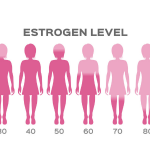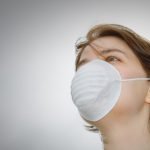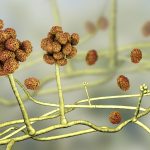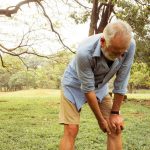Turmeric Adulteration Bulletin
Node Smith, ND
AUSTIN, Texas (June 4, 2018) — The ABC-AHP-NCNPR Botanical Adulterants Prevention Program (BAPP) has released a Botanical Adulterants Bulletin on turmeric (Curcuma longa) rhizome and its extracts.
Few herbal dietary supplement ingredients have seen such a steep sales increase over the past five years as turmeric. Turmeric has been the top-selling dietary supplement in US natural food stores since 2013, and it ranked fifth in sales in mainstream retail outlets in 2017.
Botanical Adulterants Bulletin on turmeric (Curcuma longa) rhizome
The earliest reports of turmeric adulteration were published in the 1970s and 1980s and describe adulteration of turmeric with other Curcuma species, starches, and dyes. More recently, the addition of undeclared synthetic curcumin (one of the naturally occurring curcuminoids in turmeric root and rhizome) or mixtures of synthetic curcuminoids to turmeric extracts has been reported. Synthetic curcuminoids can be sold for about one-third of the cost of natural curcuminoids, providing a financial incentive to fraudulent suppliers for diluting or replacing turmeric extracts with synthetic materials.
The new bulletin, written by Ezra Bejar, PhD, an expert in botanical research in San Diego, California, lists the known adulterants, details analytical approaches to detect adulterants, and provides information on the nomenclature, cultivation, harvest, and market importance of turmeric. It also discusses safety aspects of the known adulterants. Eighteen laboratory analytical experts from academia, government, and the herb industry have provided input on the bulletin during the peer-review process.
“The increased popularity of herbs like turmeric attracts producers and suppliers who are often more concerned about making a profit than they are about selling a high-quality botanical ingredient,” said Mark Blumenthal, founder and executive director of ABC and director of BAPP. “While there are companies that produce and market high-quality, authentic, reliable turmeric powder and extract supplements, there are also adulterated turmeric ingredients on the market. The BAPP turmeric bulletin is designed to assist purchasing departments and quality control laboratories in the herb, spice, and dietary supplement industries in assuring that responsible companies purchase only authentic turmeric ingredients.”
Stefan Gafner, PhD, chief science officer of ABC and technical director of BAPP, added: “The use of colorants to make the turmeric root visually more attractive is of particular concern. Many of the yellow or orange colorants, such as lead chromate or metanil yellow, may represent a health risk. Since daily dosages of several grams of turmeric powder are recommended for health benefits, use of adulterated turmeric products may lead to an intake of excessive amounts of these colorants.”
The turmeric bulletin is the 14th publication in the series of Botanical Adulterants Bulletins and the 41st peer-reviewed publication published by the program. As with all publications in the program, the bulletins are freely accessible to all ABC members, registered users of the ABC website, and all members of the public on the program’s website (registration required).
The goal of the Botanical Adulterant Bulletins is to provide accounts of ongoing issues related to botanical identity and adulteration, thus allowing quality control personnel and lab technicians in the herbal medicine, botanical ingredient, dietary supplement, cosmetic, herbal tea, conventional food, and other industries where botanical ingredients are used to be informed on adulteration problems that are apparently relatively widespread and/or imply safety concerns.
About the ABC-AHP-NCNPR Botanical Adulterants Prevention Program
The ABC-American Herbal Pharmacopoeia (AHP)-National Center for Natural Products Research (NCNPR) Botanical Adulterants Prevention Program is an international consortium of nonprofit professional organizations, analytical laboratories, research centers, industry trade associations, industry members, and other parties with interest in herbs and medicinal plants. The program advises industry members, researchers, health professionals, government agencies, the media, and the public about various challenges related to adulterated botanical ingredients sold in commerce. To date, more than 200 US and international parties have financially supported or otherwise endorsed the program.
To date, the program has published 41 peer-reviewed articles, Botanical Adulterants Bulletins, Laboratory Guidance Documents, and Botanical Adulterants Monitor e-newsletters. All of the program’s publications are freely available on the program’s website.
*Republished with permission
Image Copyright: <a href=’https://www.123rf.com/profile_sommai’>sommai / 123RF Stock Photo</a>
 Node Smith, ND, is a naturopathic physician in Portland, OR and associate editor for NDNR. He has been instrumental in maintaining a firm connection to the philosophy and heritage of naturopathic medicine among the next generation of docs. He helped found the first multi-generational experiential retreat, which brings elders, alumni, and students together for a weekend camp-out where naturopathic medicine and medical philosophy are experienced in nature. Four years ago he helped found the non-profit, Association for Naturopathic ReVitalization (ANR), for which he serves as the board chairman. ANR has a mission to inspire health practitioners to embody the naturopathic principles through experiential education. Node also has a firm belief that the next era of naturopathic medicine will see a resurgence of in-patient facilities which use fasting, earthing, hydrotherapy and homeopathy to bring people back from chronic diseases of modern living; he is involved in numerous conversations and projects to bring about this vision.
Node Smith, ND, is a naturopathic physician in Portland, OR and associate editor for NDNR. He has been instrumental in maintaining a firm connection to the philosophy and heritage of naturopathic medicine among the next generation of docs. He helped found the first multi-generational experiential retreat, which brings elders, alumni, and students together for a weekend camp-out where naturopathic medicine and medical philosophy are experienced in nature. Four years ago he helped found the non-profit, Association for Naturopathic ReVitalization (ANR), for which he serves as the board chairman. ANR has a mission to inspire health practitioners to embody the naturopathic principles through experiential education. Node also has a firm belief that the next era of naturopathic medicine will see a resurgence of in-patient facilities which use fasting, earthing, hydrotherapy and homeopathy to bring people back from chronic diseases of modern living; he is involved in numerous conversations and projects to bring about this vision.










